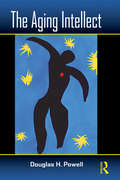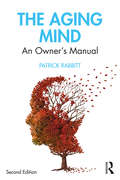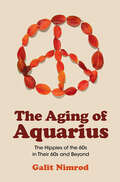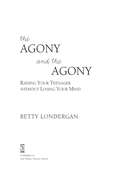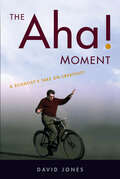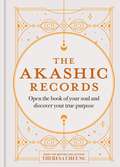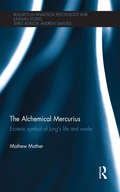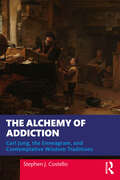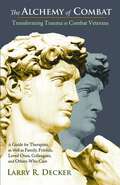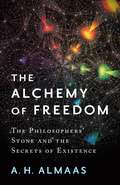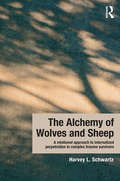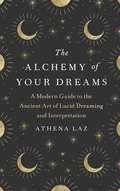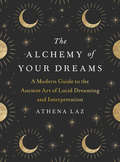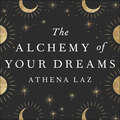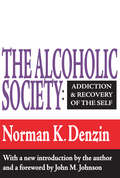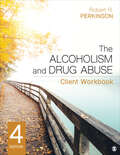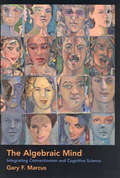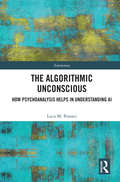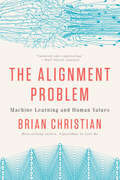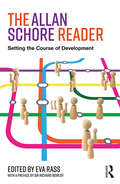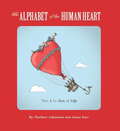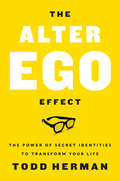- Table View
- List View
The Aging Intellect
by Douglas H. PowellHabits such as regular exercise are well known to be linked to better health in older adults. Far less is understood about behaviors that contribute to the optimally aging mind. This may be a reason why only about 25% of elders meet the standards for optimal cognitive aging. The Aging Intellect describes more than a dozen specific characteristics that distinguish older people who remain cognitively vigorous from the majority who are aging normally or are at risk for cognitive impairment. In addition, this book provides professionals with evidence-based recommendations that can help their aging patients and clients minimize the effects of predictable cognitive changes and more fully use their mental abilities. The Aging Intellect is also written for people of all ages interested in maximizing their cognitive vigor. Dr. Powell has encouraging words for those who know they are not aging optimally, but are willing to modify one or two habits that can improve their mental powers. Richly illustrated with clinical examples and case studies, The Aging Intellect includes topics rarely discussed in book form. specifies lifestyle habits and attitudes linked to three levels of cognitive aging: optimal, normal, and at risk for cognitive impairment describes evidence based strategies that minimize mental decline warns of normal cognitive changes that increase the chances of elders making poor financial decisions identifies intellectual qualities that strengthen with age.
The Aging Mind: An Owner's Manual
by Patrick RabbittThe Aging Mind offers an accessible introduction to what research has revealed about how our bodies and brains age, and how these changes affect our everyday experiences and lives. This second edition is fully updated with contemporary studies and neuroscientific findings, to offer an engaging exploration of 25 facets of the physical and mental aging processes. Written by eminent gerontologist Patrick Rabbitt, who interprets research through his own personal daily experiences, it explores what aging really is and how to accept and manage it. It explores why our sensory and cognitive experiences change as we get older, and what these developments mean for our overall physical and emotional well-being. Key topics explored include memory, intelligence, attention, sleep, vision and hearing, taste and smell, touch and balance, anxiety, depression and perception of the passage of time. It also discusses how far we can keep and develop the skills we have mastered over our lifetimes. The Aging Mind debunks unhelpful myths about the aging process and offers guidance on how we can age better, allowing us to continue to manage and enjoy our lives. This second edition is invaluable for students and researchers of cognitive gerontology, for professionals working with clients experiencing issues around aging, and for all those interested in understanding their own, or their relatives’ aging.
The Aging Mind: An owner's manual
by Patrick RabbittNo-one approaches aging with enthusiasm. Activities we accomplish easily in our 20s and 30s become more difficult as we grow old but, though change is inevitable, recognising and understanding precisely what is happening to our bodies and minds allows us to continue to manage and enjoy our lives. Patrick Rabbitt is a cognitive gerontologist who has researched physical and mental aging for over 50 years and so can interpret his personal daily experiences of the aging process through a comprehensive understanding of what gerontological research has revealed about how our bodies and brains age, and how these changes affect our everyday experiences and lives. Engagingly written, Professor Rabbitt’s book is a fascinating account of why our sensory and cognitive experiences change as we get older, and what these developments mean for our overall physical and emotional well-being. Describing the latest research the book covers the mental changes that affect our daily lives such as those in memory, intelligence, attention, sleep, vision and hearing, taste and smell, touch and balance, anxiety, depression and perception of the passage of time. It also discusses how far we can keep and develop the skills we have mastered over our lifetimes. The book debunks unhelpful myths about the aging process and offers guidance on how we can age better. This is an absorbing account of the aging process from one of the most eminent gerontologists working today. Its warmth and candour make it an engaging and helpful guide for those interested in understanding their own, or their relatives’ ageing. Its rigour and comprehensiveness make ideal for students seeking an accessible alternative to standard textbooks on aging and for health professionals working with older people.
The Aging of Aquarius: The Hippies of the 60s in Their 60s and Beyond
by Galit NimrodThere is no group of individuals more iconic of 1960s counterculture than the hippies – the long-haired, colorfully dressed youth who rebelled against mainstream societal values, preached and practiced love and peace, and generally sought more meaningful and authentic lives. These 'flower children' are now over sixty and comprise a significant part of the older population in the United States. While some hippies rejoined mainstream American society as they grew older, others still maintain the hippie ideology and lifestyle. This book is the first to explore the aging experience of older hippies by examining aspects related to identity, generativity, daily activities, spirituality, community, end-of-life care, and wellbeing. Based on 40 in-depth interviews with lifelong, returning, and past residents of The Farm, an intentional community in Tennessee that was founded in 1971 and still exists today, insights into the subculture of aging hippies and their keys to wellbeing are shared.
The Agony and the Agony
by Betty LonderganServing up more attitude than a grounded 15-year-old, a laugh-out-loud, true-to-life guide to surviving your teenOCOs surly, slothful, sassy adolescence"
The Aha! Moment: A Scientist's Take on Creativity
by David JonesThis book is about having ideas and—a much longer haul—making them work. David Jones, best known for his Daedalus column, tells a multitude of stories about creators and their creations, including his own fantastical-seeming contributions to mainstream science such as the unrideable bicycle and chemical gardens in space. His theory of creativity endows each of us with a Random-Ideas Generator, a Censor, and an Observer-Reasoner. Jones applies his theory to a wide range of weird scientific experiments that he has conducted for serious scientific papers, for challenging printed expositions, and for presentations to a TV audience. He even suggests new ones, not yet tried! Creativity is as essential to science as curiosity, physical intuition, and shrewd deduction from well-planned experiments. But, says Jones, ingenuity is very uncertain. Even for the greatest inventors, about 80 percent of ideas fail. Jokiness can help, and so can lots of random data. Jones has plenty of clever advice that will help spark that madly brilliant private thought in the first place—and will encourage you to take it further.Neither dense nor demanding, The Aha! Moment is engrossing, edifying, and scientifically serious; yet it is lightly written and asks lots of silly questions. As Jones shows, it can often pay to take an absurd idea seriously.
The Akashic Records: Open the book of your soul and discover your purpose
by Theresa CheungAre you ready to open the book of your life?Spiritual expert Theresa Cheung leads you on the path to enlightenment by introducing you a new realm of self-discovery: the Akashic records.The term 'Akashic' is rooted in the Sanskrit word 'akasha', meaning 'ether'. In the traditional Hindu Ayurvedic medicine practice, 'akasha' is one of the building blocks of the cosmos - empty space where everything connects. Your Akashic record is part of this unseen dimension, an endless energetic library that records your soul's journey through life. All your experiences, past, present and future, are written in this plane. Among them you'll find the answers to all your burning questions about yourself, your life and the universe.With Theresa as your guide, accessing your Akashic record will heighten your self-awareness, teach you to approach the world with unconditional love and give you new tools to steer the direction of your life.The sky is no longer the limit - your Akashic record awaits.Contents include:- A history and explanation of the Akashic records- An introduction to the Akashic records' spiritual guardians- The benefits of accessing your own Akashic record in your daily life- The 12 most common pathways to channel your Akashic record, featuring guided mediations, intuitive tools and dreamwork exercises
The Akashic Records: Open the book of your soul and discover your purpose
by Theresa CheungAre you ready to open the book of your life?Spiritual expert Theresa Cheung leads you on the path to enlightenment by introducing you a new realm of self-discovery: the Akashic records.The term 'Akashic' is rooted in the Sanskrit word 'akasha', meaning 'ether'. In the traditional Hindu Ayurvedic medicine practice, 'akasha' is one of the building blocks of the cosmos - empty space where everything connects. Your Akashic record is part of this unseen dimension, an endless energetic library that records your soul's journey through life. All your experiences, past, present and future, are written in this plane. Among them you'll find the answers to all your burning questions about yourself, your life and the universe.With Theresa as your guide, accessing your Akashic record will heighten your self-awareness, teach you to approach the world with unconditional love and give you new tools to steer the direction of your life.The sky is no longer the limit - your Akashic record awaits.Contents include:- A history and explanation of the Akashic records- An introduction to the Akashic records' spiritual guardians- The benefits of accessing your own Akashic record in your daily life- The 12 most common pathways to channel your Akashic record, featuring guided mediations, intuitive tools and dreamwork exercises
The Alchemical Mercurius: Esoteric symbol of Jung’s life and works (Research in Analytical Psychology and Jungian Studies)
by Mathew MatherThe figure of the alchemical Mercurius features ubiquitously and radically in Jung’s later works, but despite this, there has been little research concerning Mercurius in Jungian studies to date. In this book, Mathew Mather explores the figure of the alchemical Mercurius and contextualises and clarifies its significance in Jung’s life and works. Placing the alchemical Mercurius as a central concern reveals a Jungian interpretation in which the grail legend, alchemy and precessional astrology, as three thematic threads, converge. In such a treatment, Jung’s belief in the dawning of a new platonic month emerges as a central consideration and an esoteric perspective on Jung’s life and works is brought more fully to light, constructing a life-myth interpretation. The book is comprised of three parts: Aurea Catena: locating the figure of the alchemical Mercurius within the Western esoteric tradition Daimonic Encounter: the relevance of this figure in Jung’s personal life Magnum Opus: Jung’s portrayal of this figure in key texts such as Synchronicity, Aion, Mysterium Coniunctionis; and Emma Jung and von Franz’s The Grail Legend. The Alchemical Mercurius is a unique contribution to analytical psychology, substantially revealing ‘esoteric Jung’ and providing valuable perspectives on the theme of his myth for our times. The book will appeal to researchers and academics in the field of analytical psychology as well as postgraduate students.
The Alchemy of Addiction: Carl Jung, the Enneagram, and Contemplative Wisdom Traditions
by Stephen J. CostelloWithin this important book, Stephen J. Costello draws on Eastern philosophy, Western psychology, and wisdom traditions to offer an interpretation and answer to the multidimensional problem of addiction.The nature of pleasure, pain, and attachment are discussed, together with stress as a key source of our suffering. Justifying and grounding the work is C. G. Jung’s central insight that the solution to our disordered desires lies in cultivating a spiritual approach to life. As such, a detailed exploration of the Twelve Steps of recovery is elucidated from the threefold perspective of the philosophy of Advaita, the Enneagram system, and the Christian contemplations of Richard Rohr, John Main, and Thomas Keating, as well as St Ignatius of Loyola. The work concludes with a brief look at Platonic ethics, especially the virtue of temperance, St Benedict’s spirituality of humility, and the law of dharma as a blueprint for purposeful non-addicted living.This book will appeal to a wide variety of readers such as mental health professionals in the counselling and psychotherapy professions, as well as students of depth psychology and philosophy.
The Alchemy of Combat: Transforming Trauma in Combat Veterans
by Larry R. DeckerThe Alchemy of Combat is a process of breakdown and renewal, and from that breakdown can come the transformational discovery of meaning and purpose, of a higher awareness with an expanded and inspired worldview, and uplifting happiness for the soul. Larry R. Decker Ph.D. provides a guide through this process for therapists as well as family, friends, loved ones, colleagues and others caring for combat veterans who are seeking to move through Posttraumatic Stress Disorder into a renewal of life through Posttraumatic Growth.
The Alchemy of Freedom: The Philosophers' Stone and the Secrets of Existence
by A. H. AlmaasWell-known spiritual teacher A. H. Almaas uses the metaphor of the mysterious philosopher's stone to discuss a tremendous liberating power that leads to endless enlightenment. For millennia alchemists sought the philosophers’ stone, the miracle substance believed to be the key to all the secrets of existence. The quest was fueled by some of the prime questions of human existence: What am I? Why am I here? How has this world come to be?A. H. Almaas shows that the tremendous liberating power of the mysterious philosophers’ stone is closer to us than we realize. In fact, it is the true nature of all reality—in all times and all places, without being limited to being anything in particular. Through the philosophers’ stone, real transformation can happen, our consciousness can become free, and we can open to all the possibilities of reality. Almaas discusses the factors that are involved in igniting the catalytic property of the philosophers’ stone and then begins to unpack the properties of true nature when it is free of constraints. Finally, we are left with the revelation that true nature is endlessly knowable, and yet nothing we can know or say about it exhausts its mystery and power. The result is a new understanding of what liberation and practice are—and a view of what it’s like when seeking ceases and life becomes a process of continual discovery. We begin to appreciate that the freedom of reality expressed in the complete and fulfilled life all human beings seek—and few find—is actually the simplicity of the ordinary.
The Alchemy of Wolves and Sheep: A Relational Approach To Internalized Perpetration In Complex Trauma Survivors
by Harvey L. SchwartzThe literature on psychological trauma and traumatic attachment has progressed over the past few decades, however issues of coerced and internalized perpetration have not been fully explored and deconstructed. This book presents a synthesis of relational and archetypal psychology, trauma and dissociation theory, and highly relevant child soldier literature, to offer new clinical perspectives to assist psychotherapists and trauma patients to achieve more successful therapy outcomes. The Alchemy of Wolves and Sheep offers instructive, cautionary and innovative therapeutic approaches to help transform the lives of survivors of complex trauma. Providing an explanation of how the effects of coerced perpetration trauma are built, and the damage done to the psyches and lives of most trauma victims, the book extends our knowledge base in a thorough deconstruction of the nature of perpetration and its effects on the psyche. Chapters include: - trauma, dissociation, and coerced perpetration - the child soldier as a model of internalized perpetration - relational concepts in the treatment of trauma and dissociative disorders - treatment trajectory - archetypal constructs as a vehicle for integration. This book provides valuable new perspectives on the psychodynamic challenges and opportunities for mental health professionals treating internalized perpetration in survivors of complex trauma, and will prove essential reading for psychotherapists, psychoanalysts and post-graduate students as well as researchers, legal scholars and policy makers.
The Alchemy of Your Dreams: A Modern Guide to the Ancient Art of Lucid Dreaming and Interpretation
by Athena LazUnlock the power of your dreams to lead you on the ultimate journey of self-discovery and personal growth.Roughly one-third of our lives is spent sleeping. We know that time spent asleep is vital for rest and rejuvenation, but what if this time could be used for something more? What if our dreams really are telling us something? Psychologist Athena Laz has dedicated her career to uncovering the wisdom of our dreams and revolutionising what it means to be in touch with ourselves and the universe.Packed with expert-level exercises and step-by-step instructions, The Alchemy of Your Dreams teaches readers how to interpret their dreams and how to lucid-dream in order to achieve more in their waking lives. From improved mental wellbeing to enhanced spirituality, this modern guide provides a roadmap to:- Decoding your dreams to uncover their innate guidance.- Learning the power of lucid dreaming.- Rekindling the connection to your unconscious and subconscious mind through your dreams. - Understanding the specific dream figures and symbols that appear in your dreams.- Exploring the world of consciousness and gaining clarity on who you really are.- Unleashing creativity and overcoming past pain for greater wellbeing.For anyone who has ever felt that their dreams have true meaning, this book provides the exact tools needed to unravel their symbolism, harness their power and level-up our lives.
The Alchemy of Your Dreams: A Modern Guide to the Ancient Art of Lucid Dreaming and Interpretation
by Athena LazUnlock the power of your dreams to lead you on the ultimate journey of self-discovery and personal growth.Roughly one-third of our lives are spent sleeping. We know that sleep is vital for rest and rejuvenation, but what if this time could be used for something more? What if our dreams really are telling us something? Psychologist and dream expert Athena Laz has dedicated her career to uncovering the wisdom of our dreams and revolutionizing what it means to be in touch with ourselves and the universe. Packed with exercises and step-by-step instructions, The Alchemy of Your Dreams teaches readers how to interpret their dreams in order to achieve more in their waking lives. From improved mental well-being to enhanced spirituality, this groundbreaking book provides a road map to: • Decoding your dreams to uncover their innate guidance • Learning the ancient art of lucid dreaming & discovering the incredible gifts that accompany the practice • Rekindling the connection to your unconscious and subconscious mind through your dreams • Understanding the specific dream figures and symbols that appear in your dreams • Exploring the world of consciousness and gaining clarity on who you really are • Unleashing creativity and overcoming past pain for greater well-beingFor anyone who has ever felt that their dreams have true import and meaning, this book provides the exact tools needed to unravel their symbolism and harness their power to transform our lives.
The Alchemy of Your Dreams: A Modern Guide to the Ancient Art of Lucid Dreaming and Interpretation
by Athena LazUnlock the power of your dreams to lead you on the ultimate journey of self-discovery and personal growth.Roughly one-third of our lives is spent sleeping. We know that time spent asleep is vital for rest and rejuvenation, but what if this time could be used for something more? What if our dreams really are telling us something? Psychologist Athena Laz has dedicated her career to uncovering the wisdom of our dreams and revolutionising what it means to be in touch with ourselves and the universe.Packed with expert-level exercises and step-by-step instructions, The Alchemy of Your Dreams teaches listeners how to interpret their dreams and how to lucid-dream in order to achieve more in their waking lives. From improved mental wellbeing to enhanced spirituality, this modern guide provides a roadmap to:- Decoding your dreams to uncover their innate guidance.- Learning the power of lucid dreaming.- Rekindling the connection to your unconscious and subconscious mind through your dreams.- Understanding the specific dream figures and symbols that appear in your dreams.- Exploring the world of consciousness and gaining clarity on who you really are.- Unleashing creativity and overcoming past pain for greater wellbeing.For anyone who has ever felt that their dreams have true meaning, this audiobook provides the exact tools needed to unravel their symbolism, harness their power and level-up our lives.(P) 2021 Penguin Audio
The Alcoholic Society: Addiction and Recovery of the Self
by Reece McGeeOffering a unique theoretical foundation to understanding the lived experience of the active alcoholic, Denzin asserts that alcoholism is a disease in which negative emotions divide the self into warring, inner factions, fueled and distorted by alcoholic intoxication. The work is solidly anchored in a long-term study of the socialization experiences that began in alcoholism treatment centers and continue in Alcoholics Anonymous recovery programs. It covers the treatment process, the restructuring of self, the alcoholic's interaction with his recovery treatment program, and the modalities of self-transcendence that result from treatment.
The Alcoholism and Drug Abuse Client Workbook
by Robert R. PerkinsonThe Alcoholism and Drug Abuse Patient Workbook is intended for patients on their journey to recovery in 12-step treatment programs. Designed to provide a venue for individuals to write down their thoughts and experiences as they progress through the 12 steps of treatment. As a complement Chemical Dependency Counseling, this interactive book is used and purchased by treatment centers and individual substance abuse counselors. The workbook takes the patient (client) through the first five steps of recovery and offers space for the client to work on their own personal recovery plan. It also has a chapter on preventing relapse and honesty.
The Alcoholism and Drug Abuse Client Workbook
by Robert R. PerkinsonThe Alcoholism and Drug Abuse Patient Workbook is intended for patients on their journey to recovery in 12-step treatment programs. Designed to provide a venue for individuals to write down their thoughts and experiences as they progress through the 12 steps of treatment. As a complement Chemical Dependency Counseling, this interactive book is used and purchased by treatment centers and individual substance abuse counselors. The workbook takes the patient (client) through the first five steps of recovery and offers space for the client to work on their own personal recovery plan. It also has a chapter on preventing relapse and honesty.
The Algebraic Mind: Integrating Connectionism and Cognitive Science (Learning, Development, and Conceptual Change)
by Gary F. MarcusIn The Algebraic Mind, Gary Marcus attempts to integrate two theories about how the mind works, one that says that the mind is a computer-like manipulator of symbols, and another that says that the mind is a large network of neurons working together in parallel. Resisting the conventional wisdom that says that if the mind is a large neural network it cannot simultaneously be a manipulator of symbols, Marcus outlines a variety of ways in which neural systems could be organized so as to manipulate symbols, and he shows why such systems are more likely to provide an adequate substrate for language and cognition than neural systems that are inconsistent with the manipulation of symbols. Concluding with a discussion of how a neurally realized system of symbol-manipulation could have evolved and how such a system could unfold developmentally within the womb, Marcus helps to set the future agenda of cognitive neuroscience.
The Algorithmic Unconscious: How Psychoanalysis Helps in Understanding AI (Antinomies)
by Luca M. PossatiThis book applies the concepts and methods of psychoanalysis to the study of artificial intelligence (AI) and human–AI interaction. It develops a new, more fruitful approach for applying psychoanalysis to AI and machine behavior. It appeals to a broad range of scholars: philosophers working on psychoanalysis, technology, AI ethics, and cognitive sciences, psychoanalysts, psychologists, and computer scientists. The book is divided into four parts. The first part (Chapter 1) analyzes the concept of "machine behavior." The second part (Chapter 2) develops a reinterpretation of some fundamental Freudian and Lacanian concepts through Bruno Latour’s actor-network theory. The third part (Chapters 3 and 4) focuses on the nature and structure of the algorithmic unconscious. The author claims that the unconscious roots of AI lie in a form of projective identification, i.e., an emotional and imaginative exchange between humans and machines. In the fourth part of the book (Chapter 5), the author advances the thesis that neuropsychoanalysis and the affective neurosciences can provide a new paradigm for research on artificial general intelligence. The Algorithmic Unconscious explores a completely new approach to AI, which can also be defined as a form of "therapy." Analyzing the projective identification processes that take place in groups of professional programmers and designers, as well as the "hidden" features of AI (errors, noise information, biases, etc.), represents an important tool to enable a healthy and positive relationship between humans and AI. Psychoanalysis is used as a critical space for reflection, innovation, and progress.
The Alignment Problem: Machine Learning And Human Values
by Brian ChristianA jaw-dropping exploration of everything that goes wrong when we build AI systems and the movement to fix them. Today’s “machine-learning” systems, trained by data, are so effective that we’ve invited them to see and hear for us—and to make decisions on our behalf. But alarm bells are ringing. Recent years have seen an eruption of concern as the field of machine learning advances. When the systems we attempt to teach will not, in the end, do what we want or what we expect, ethical and potentially existential risks emerge. Researchers call this the alignment problem. Systems cull résumés until, years later, we discover that they have inherent gender biases. Algorithms decide bail and parole—and appear to assess Black and White defendants differently. We can no longer assume that our mortgage application, or even our medical tests, will be seen by human eyes. And as autonomous vehicles share our streets, we are increasingly putting our lives in their hands. The mathematical and computational models driving these changes range in complexity from something that can fit on a spreadsheet to a complex system that might credibly be called “artificial intelligence.” They are steadily replacing both human judgment and explicitly programmed software. In best-selling author Brian Christian’s riveting account, we meet the alignment problem’s “first-responders,” and learn their ambitious plan to solve it before our hands are completely off the wheel. In a masterful blend of history and on-the ground reporting, Christian traces the explosive growth in the field of machine learning and surveys its current, sprawling frontier. Readers encounter a discipline finding its legs amid exhilarating and sometimes terrifying progress. Whether they—and we—succeed or fail in solving the alignment problem will be a defining human story. The Alignment Problem offers an unflinching reckoning with humanity’s biases and blind spots, our own unstated assumptions and often contradictory goals. A dazzlingly interdisciplinary work, it takes a hard look not only at our technology but at our culture—and finds a story by turns harrowing and hopeful.
The Allan Schore Reader: Setting the course of development
by Eva RassEva Rass, a leading expert on the work of Allan Schore, presents a collection that provides an overview of his core ideas and makes accessible the evolution of his thought. Including interviews and original papers, as well as integrating his ideas with research in psychoanalysis, developmental psychology, biology and developmental psychopathology, this book provides an in-depth introduction to Schore’s theories. Allan Schore: Setting the Course of Development represents a major contribution to the understanding of Schore’s often dense and complex work. The choice of papers, interviews and subject matter is structured and instructive, while the content captures both the depth and breadth of Schore’s ideas, including important extensions into other fields, like paediatrics, social works and family law. Schore’s contribution to the advancing knowledge base – pioneering the paradigm shift in researchers’ focus in psychopathogenesis from the cognitive verbal left brain to the affective, preverbal right brain – is here made accessible to a far greater readership. The book will be of interest to all practitioners, researchers, educators and policy makers dealing with the critically important and broad field of mental health service delivery and prevention of mental illness for those "at risk", particularly psychoanalysts, psychoanalytic psychotherapists and counsellors.
The Alphabet of the Human Heart: The A to Zen of Life
by James Kerr Matthew JohnstoneA handbook for the happy, and a bible for the broken-hearted, The Alphabet of the Human Heart is an enchanting and enriching journey through the upside and the downside of what it means to be human - our hopes and our fears, our strength and our weakness, our highs and our lows.The Alphabet of the Human Heart is a book of literally two halves. Firstly there is upside A-Z, which is full of the happy and hopeful aspects of our lives, such as A is for Adventure, through G is for Gratitude, S is for Smile to Zen is the Place to Be. The other downside half examines the negative parts of our character lives and how we can overcome them to lead more positive and fulfilling lives. From A is for Anger, through H is for Hate, T is for Temptation to once again end on Zen is the Place to be. Matthew and James have been friends for over 30 years and they've experienced both sides of life - the upside and the downside - and they've turned their experience of life - and of friendship - into a book that combines words and pictures to tell a bigger story.Praise for I Had a Black Dog:'I Had a Black Dog says with wit, insight, economy and complete understanding what other books take 300 pages to say. Brilliant and indispensable.' - Stephen Fry'Finally, a book about depression that isn't a prescriptive self-help manual. Johnston's deftly expresses how lonely and isolating depression can be for sufferers. Poignant and humorous in equal measure.' Sunday TimesPraise for Living with a Black Dog:'Moving and thoughtfully written ... a must-have' Daily Mirror'Comprehensive and very helpful ... brilliant' Guardian Weekend
The Alter Ego Effect: The Power of Secret Identities to Transform Your Life
by Todd HermanA top performance expert reveals the secret behind many top athletes and executives: creating a heroic alter ego to activate when the chips are down.There’s only one person in the way of you untapping your potential: You. There’s also one person who can move you out of the way so you can perform at your peak. That person is already inside you. You just need to unlock them. This other part of you is your Alter Ego. After twenty-one years of working with elite athletes, performers and leaders, Todd Herman has discovered how you can use your alter ego to achieve the seemingly impossible. It all clicked for Todd when he met Bo Jackson. When Herman met Bo Jackson, the professional athlete told him, “Bo Jackson never played a down of football in his entire life.” Bo explained that when he was young, he’d get into trouble because chaos caused by his anger issues. Then, he saw Friday the 13th and became fascinated by the cold, calculating nature of Jason Vorhees. In that moment, he resolved to stop being Bo Jackson, and start being Jason the moment he stepped on the field. In this transformative guide, Herman teaches you how to create and control an Alter Ego like Bo—and the thousands of other athletes, business leaders, entrepreneurs, and entertainers who have used this simple tool to change their lives. Herman also shares his own story: he knew that inside was a confident, self-assured, intelligent person who could help others get better results in their lives. When he started using superman’s classic trick—putting on a pair of glasses—he learned to trigger the specific traits he needed to achieve his goals.The Alter Ego Effect is not about creating a false mask—it’s about finding the hero already inside you. It’s a proven way of overcoming the self-doubt, negativity, and insecurity that hold you back, and empowering you to ultimately become your best self.
